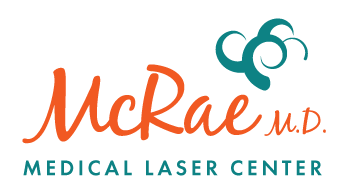Purpose
The Americans with Disabilities Act (ADA) and the Americans with Disabilities Amendments Act (ADAAA) are federal laws that require employers with 15 or more employees to not discriminate against applicants and individuals with disabilities and, when needed, to provide reasonable accommodations to applicants and employees who are qualified for a job, with or without reasonable accommodations, so that they may perform the essential job duties of the position.
It is the policy of McRae MD Medical Laser Spa to comply with all federal and state laws concerning the employment of persons with disabilities and to act in accordance with regulations and guidance issued by the Equal Employment Opportunity Commission (EEOC). Furthermore, it is the company policy not to discriminate against qualified individuals with disabilities in regard to application procedures, hiring, advancement, discharge, compensation, training or other terms, conditions and privileges of employment.
Procedures
When an individual with a disability requests accommodation and can be reasonably accommodated without creating an undue hardship or causing a direct threat to workplace safety, he or she will be given the same consideration for employment as any other applicant. Applicants who pose a direct threat to the health, safety and well-being of themselves or others in the workplace when the threat cannot be eliminated by reasonable accommodation will not be hired.
McRae MD Medical Laser Spa will reasonably accommodate qualified individuals with a disability so that they can perform the essential functions of a job unless doing so causes a direct threat to these individuals or others in the workplace and the threat cannot be eliminated by reasonable accommodation or if the accommodation creates an undue hardship to McRae MD Medical Laser Spa. Contact human resources (HR) with any questions or requests for accommodation.
All employees are required to comply with the company’s safety standards. Current employees who pose a direct threat to the health or safety of themselves or other individuals in the workplace will be placed on leave until an organizational decision has been made in regard to the employee’s immediate employment situation.
Individuals who are currently using illegal drugs are excluded from coverage under the company ADA policy.
The HR department is responsible for implementing this policy, including the resolution of reasonable accommodation, safety/direct threat and undue hardship issues.
Terms Used in This Policy
As used in this ADA policy, the following terms have the indicated meaning:
Disability: A physical or mental impairment that substantially limits one or more major life activities of the individual, a record of such an impairment, or being regarded as having such an impairment.
Major life activities: Term includes caring for oneself, performing manual tasks, seeing, hearing, eating, sleeping, walking, standing, lifting, bending, speaking, breathing, learning, reading, concentrating, thinking, communicating and working.
Major bodily functions: Term includes physical or mental impairment such as any physiological disorder or condition, cosmetic disfigurement or anatomical loss affecting one or more body systems, such as neurological, musculoskeletal, special sense organs, respiratory (including speech organs), cardiovascular, reproductive, digestive, genitourinary, immune, circulatory, hemic, lymphatic, skin and endocrine. Also covered are any mental or psychological disorders, such as intellectual disability (formerly termed “mental retardation”), organic brain syndrome, emotional or mental illness and specific learning disabilities.
Substantially limiting: In accordance with the ADAAA final regulations, the determination of whether an impairment substantially limits a major life activity requires an individualized assessment, and an impairment that is episodic or in remission may also meet the definition of disability if it would substantially limit a major life activity when active. Some examples of these types of impairments may include epilepsy, hypertension, asthma, diabetes, major depressive disorder, bipolar disorder and schizophrenia. An impairment, such as cancer that is in remission but that may possibly return in a substantially limiting form, is also considered a disability under EEOC final ADAAA regulations.
Direct threat: A significant risk to the health, safety or well-being of individuals with disabilities or others when this risk cannot be eliminated by reasonable accommodation.
Qualified individual: An individual who, with or without reasonable accommodation, can perform the essential functions of the employment position that such individual holds or desires.
Reasonable accommodation: Includes any changes to the work environment and may include making existing facilities readily accessible to and usable by individuals with disabilities, job restructuring, part-time or modified work schedules, telecommuting, reassignment to a vacant position, acquisition or modification of equipment or devices, appropriate adjustment or modifications of examinations, training materials or policies, the provision of qualified readers or interpreters, and other similar accommodations for individuals with disabilities.
Undue hardship: An action requiring significant difficulty or expense by the employer. In determining whether an accommodation would impose an undue hardship on a covered entity, factors to be considered include:
The nature and cost of the accommodation.
The overall financial resources of the facility or facilities involved in the provision of the reasonable accommodation, the number of persons employed at such facility, the effect on expenses and resources, or the impact of such accommodation on the operation of the facility.
The overall financial resources of the employer; the size, number, type and location of facilities.
The type of operations of the company, including the composition, structure and functions of the workforce; administrative or fiscal relationship of the particular facility involved in making the accommodation to the employer.
Essential functions of the job: Term refers to those job activities that are determined by the employer to be essential or core to performing the job; these functions cannot be modified.
The examples provided in the above terms are not meant to be all-inclusive and should not be construed as such. They are not the only conditions that are considered to be disabilities, impairments or reasonable accommodations covered by the ADA/ADAAA policy.
